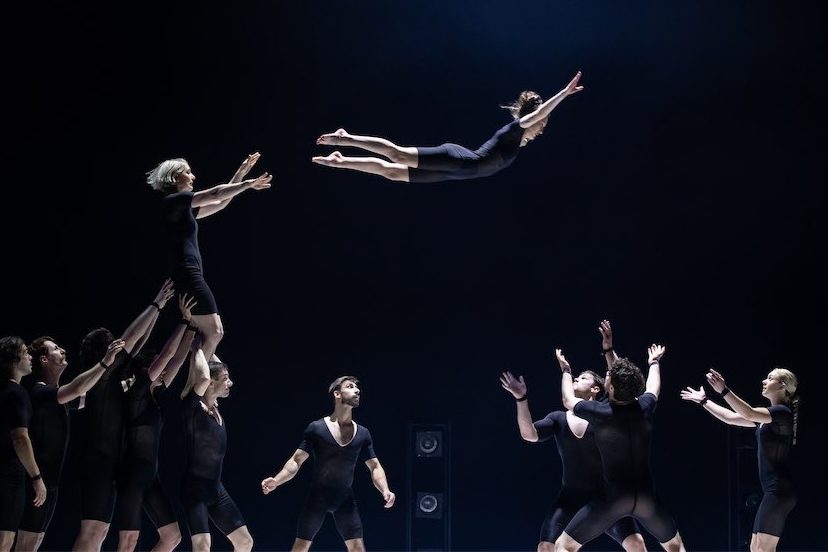
THE annual Latin American Film Festival is in preparation and this year it falls to the ambassador for Uruguay, Dianela Pi, to curate the free public event.
Señora Pi has been here for a year or so and spent most of her time in lockdown, so told “CityNews” how much she was looking forward to “our biggest event in the year with Australia – it’s so exciting”.
Organised by the Latin American embassies In Canberra, for the first time the festival is made up of 15 films representing the 15 countries with diplomatic representation in Canberra.
While Pi sees the festival as a way of ”bringing faraway countries here to good friends,” she has had no trouble spotting a lot of similarities between at least her part of South America and Australia.
The Uruguayan beaches, she says, are like those of NSW, for instance, but on the other hand, though we have all been colonised, some countries, like hers, boast a wealth of old European architecture though sadly no indigenous people left, the only Latin American country countries where that is the case.

Among the positive thing that excite Pi is the sheer ambition of the Uruguayan film industry to position itself as a filming destination, not unlike Australia’s Gold Coast, and she sees it as part of her brief while in Australia to help design an agreement to facilitate audio-visual interactions.
“Miami Vice,” she says, has been known to use Montevideo as a location and a beach scene in a recent Cuban movie was actually a beach in Uruguay.
She says the festival covers many different subjects, from drama and social interaction to history and comedy, of which she notes, “every one of our countries has a different sense of humour”.
Uruguay’s opening-night offering, “The Employer and the Employee”, directed by Manuel Nieto Zas, tells of the have and the have-nots. Rodrigo takes over his father’s farm in the border region between Uruguay and Brazil, he hires the inexperienced Carlos, the son of an employee. An unusual friendship grows out of their interaction, but one day an accident happens.

From Chile comes “Spider”, directed by Andrés Wood, a political thriller. In the chaotic Chile of the early ’70s, three friends are members of an ultra-right-wing group “Patria y Libertad” that is determined to bring down the democratic government of Salvador Allende.
Real-life stories are to the fore. “Mangoré” directed by Luis R Vera, is a biopic based on the life of the musician Agustin Barrios Mangoré, an influential composer and classical guitarist from Paraguay, while “Tropical Iron” from Costa Rica, directed by Mark C Baldwin, is a documentary about the construction of the Costa Rican Atlantic Railway in the 19th century.
The film from Cuba, “Innocence”, directed by Carlos de la Huerta, looks fictional but is based on real events from La Havana, where, in 1871, a class of first-year medical students were imprisoned after an unfair accusation.
Ecuador’s offering, “Warmi Pachakutik, time of women,” directed by Frida Muenala, is about an Ecuadorian political party backed by the indigenous communities, whose activism generate change.
Romance is especially prominent in this year’s festival.
Brazil’s “Big House” directed by Isaac Cherem, is a drama-romance that explores issues of class privilege among Rio’s decadent elite, while Panama’s “Something Blue”, directed by Mariel García Spooner, pokes fun at the obsession with the “dream wedding”.
One drama-comedy-romance, Venezuela’s “Uphill Love”, directed by Nelson Núñez, has a twist as a young man discovers that the love of his adolescence is now working at the oldest profession in the world.
Peru’s film “Trip to Timbuktu”, directed by Rossana Diaz Costa, centres on Ana, growing up in Lima in the ’80s during the ascendancy of the of Shining Path rebel movement. As the movie progresses, the violence grows.
Several of the films focus on class and social issues in Latin America’s diverse populations.
El Salvador’s “Pablo’s Word” directed by Arturo Menendez, loosely inspired by Shakespeare’s “Othello”, tells the story of a broken contemporary Salvadorian upper-middle-class family struggling with jealousy and revenge, while Mexico’s “Leona,” directed by Isaac Cherem, is the story of a young Jewish woman from Mexico City torn between her family and her forbidden love with a non-Jewish man.
From Colombia comes “El Piedra”, directed by Rafael Martínez Moreno, a drama that takes different look at the sport of boxing through the lives of ordinary people.
There’s not a lot of straight comedy, but from Argentina comes “Today we Fix the World”, directed by Ariel Winograd, which introduces El Griego (the Greek), the general producer of a TV talk show where supposedly ordinary people settle relationship conflicts, even though his own relationships are another matter altogether.
And from Guatemala comes “Martin & Margot”, directed by Chris Kummerfeldt Quiroa, an adventure-comedy-drama about two writers traveling through Guatemala to find La Bestia, the mythological poet.
The 17th Latin American Film Festival, Kambri Theatre, ANU, August 4-31. Free, all welcome. Information here
Who can be trusted?
In a world of spin and confusion, there’s never been a more important time to support independent journalism in Canberra.
If you trust our work online and want to enforce the power of independent voices, I invite you to make a small contribution.
Every dollar of support is invested back into our journalism to help keep citynews.com.au strong and free.
Thank you,
Ian Meikle, editor




Leave a Reply